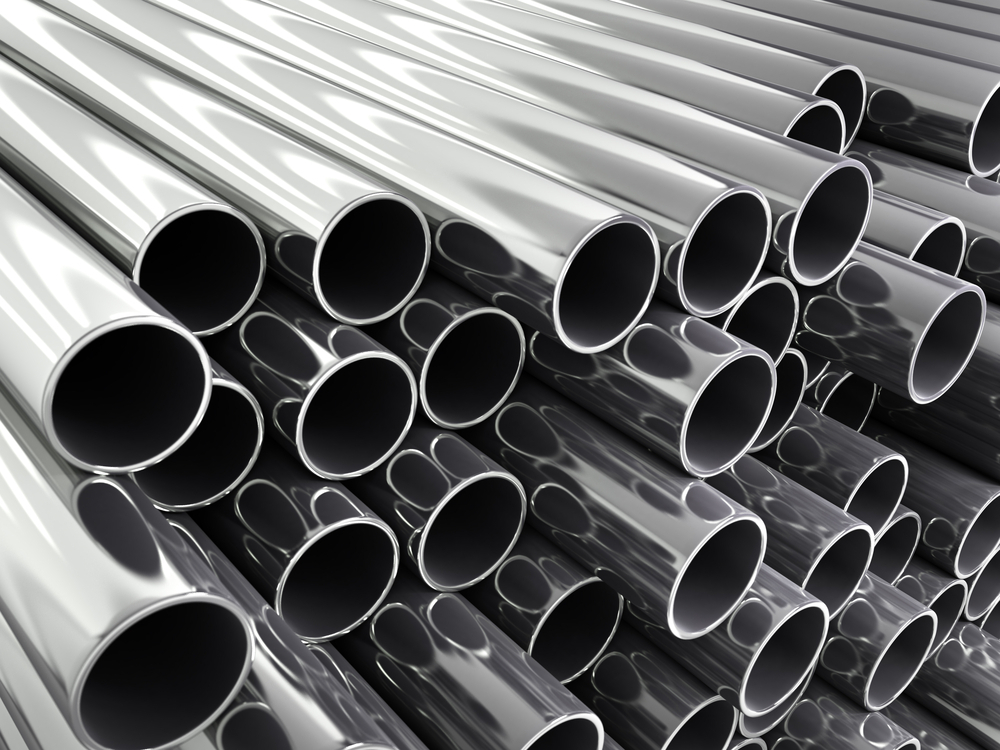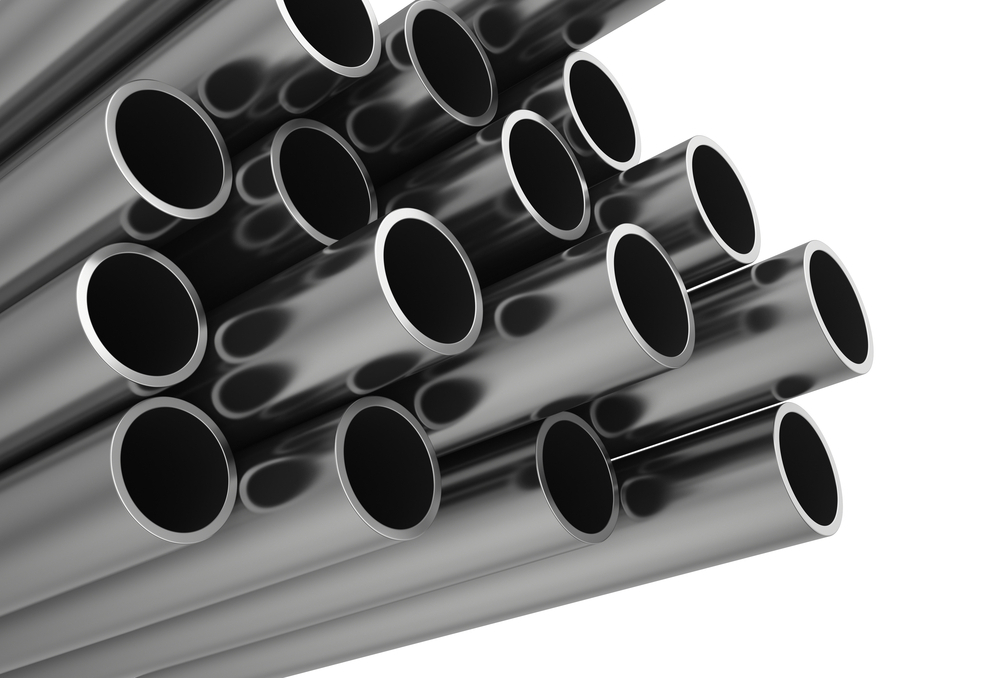Unveiling the Powerful Potential of Stainless Steel Pipes and Their Versatile Applications
Introduction to Stainless Steel Pipes
Stainless steel pipes are a specialized type of metal pipe made from steel alloys containing at least 10.5% chromium. The added chromium creates a ‘passive layer’ on the pipe’s surface, making it highly resistant to corrosion and rust. steel pipes combine high durability, strength, and excellent corrosion protection. Let’s examine these indispensable industrial pipes’ different types, benefits, uses, and properties.
Overview of Stainless Steel Pipes
Stainless steel pipes come in various diameters and wall thicknesses to suit different pressure and temperature applications. They can be manufactured using seamless, welded, and fabricated methods depending on the required mechanical properties.
Key Properties and Uses
The key properties of corrosion and heat resistance allow steel pipes to be used extensively in harsh environments across critical industries. Their high strength makes them suitable for structural load-bearing applications as well.
Types of Stainless Steel Pipes
There are several types categorized by crystalline structure and alloy composition:
Austenitic Stainless Steel
This most common type contains nickel and is non-magnetic. It offers high corrosion resistance and weldability.
Ferritic Stainless Steel
Ferritic types contain little or no nickel but high chromium for corrosion protection. They are less ductile than austenitic.
Duplex Stainless Steel
Duplex types combine the beneficial properties of both austenitic and ferritic steel for enhanced strength and corrosion resistance.
Martensitic Stainless Steel
Martensitic stainless steel has a high carbon content, making it strong but less corrosion-resistant. It is commonly used in cutlery.
Precipitation Hardening Stainless Steel
These types use alloying elements like copper and aluminum to achieve high strength through heat treatment while retaining corrosion resistance.
Key Functions of Stainless Steel Pipes
Thanks to their durable and reliable construction, steel pipes serve varied core functions:
Transporting Fluids
Stainless steel pipes efficiently transport liquids, gases, slurries, and corrosive fluids safely in various industrial applications.

Heat Transfer Applications
The excellent thermal conductivity of stainless steel makes the pipes well-suited for heat exchangers and boilers.
Decorative Purposes
Architectural uses like handrails and facades leverage the attractive, shiny appearance and corrosion resistance of stainless pipes.
Major Applications of Stainless Steel Pipes
Some major industries using stainless steel pipes:
Industrial Piping Systems
Chemical processing, pharmaceutical, petrochemical, and water treatment plants widely use pipes to safely handle corrosive substances.
Automotive and Transportation
Stainless steel pipes make up exhaust systems, fuel lines, and critical engine components in vehicles, ships, and aircraft.
Construction and Architecture
Buildings use steel pipes structurally and decoratively for railings, curtain rods, and cladding due to their strength and aesthetics.
Food and Beverage Processing
Stainless steel pipes enable hygienic fluid transport and processing in the food and beverage industry where corrosion resistance is vital.
Medical Equipment
The biocompatibility and stabilizability of stainless steel make it essential for surgical instruments, medical devices, and hospital infrastructure.
Power Generation
Stainless steel pipes find extensive use in nuclear, geothermal, solar thermal, and fossil fuel power plants for their temperature resistance.
Benefits of Using Stainless Steel Pipes
Stainless steel pipes provide major advantages:
Corrosion Resistance
The dense chromium oxide layer on steel prevents rusting and corrosion, even in highly acidic or saline environments.
High Strength and Durability
Stainless steel pipes withstand extremely high pressures and mechanical stress without failing, cracking, or deforming permanently.
Hygiene and Cleanliness
The non-porous surface of steel prevents the buildup of microbes and permits sterilization, vital for applications like pharmaceuticals and medicine.
Attractive Appearance
The lustrous and contemporary look of stainless steel pipes makes them ideal for modern architecture and design applications.
Excellent Thermal Conductivity
Stainless steel pipes conduct heat efficiently, allowing their use in cryogenic tanks, boilers, and heat exchangers.
Recyclability
Stainless steel pipes are 100% recyclable at the end of service life, supporting sustainability.
Rust Resistance of Stainless Steel Pipes
While extremely rust-resistant, steel pipes can corrode under specific conditions:
Surface Contamination Causes
Contact with iron debris or carbon steel can leave contamination, leading to rusting and pitting.

Role of Chloride Environments
The high chloride content in coastal and underwater settings destroys the protective chromium oxide layer over time.
Preventing Rust Through Maintenance
Proper handling, cleaning, and inspection ensure surface integrity and prevent rust-causing contamination or damage.
Coloring Options for Stainless Steel Pipes
While stainless steel has a silver-grey appearance, pipes can be colored for decorative purposes using:
Powder Coating
A colored polyester powder coating baked onto the surface offers a durable and abrasion-resistant finish.
Chemical Coloring
Chemical surface treatments produce translucent amber-to-black coloring through the refractive oxide layers formed.
Physical Vapor Deposition (PVD)
Vacuum deposition of thin-film metallic or ceramic coatings allows a wide color palette for architectural use.
Applications of Colored Pipes
Colored stainless steel pipes see use in decorative architecture, consumer products, automotive trim, and accents where aesthetics and corrosion protection are vital.
Strength Comparison to Carbon Steel Pipes
Higher Strength of Carbon Steel
Carbon steel pipes generally offer higher mechanical strength due to their high carbon composition and production heat treatments.
Corrosion Resistance of Stainless Steel
Stainless steel provides superior corrosion and oxidation resistance in harsh environments compared to carbon steel.
Role of Pipe Composition and Processes
Alloying elements like molybdenum further improve the strength of certain stainless steel grades, while cold working boosts carbon steel strength.
Importance of Application-Based Selection
When selecting pipes, factors like temperature, pressure, environment, aesthetics, and cost must be weighed alongside strength and corrosion resistance.
Conclusion
Summary of Stainless Steel Pipe Attributes
Stainless steel pipes provide excellent corrosion and heat resistance, high strength-to-weight ratio, aesthetic appearance, biocompatibility, and temperature conduction. Various types suit diverse uses.
Applications Where They Deliver Value
From skyscrapers to car exhausts to water treatment plants, steel pipes are indispensable across critical industries where material failure cannot be tolerated due to their reliability.
FAQs
What is the difference between stainless steel and carbon steel pipes?
Stainless steel pipes contain chromium for corrosion resistance while carbon steel is susceptible to rusting. Stainless also maintains strength at high temperatures better. Carbon steel typically offers higher ductility and raw strength.
How are stainless steel pipes colored?
Methods like powder coating, chemical coloring treatments, and physical vapor deposition can produce durable colored finishes on stainless steel pipe exteriors for aesthetic purposes.
Can stainless steel pipes withstand seawater?
Yes, steel has excellent chloride corrosion resistance. However, certain alloys like duplex grades offer even better performance in marine environments compared to standard austenitic grades.
Are stainless steel pipes fully recyclable?
Yes, steel pipes are 100% recyclable at the end of life. They are simply re-melted and alloying elements extracted for reuse in new steel products, supporting sustainability.
Where are stainless steel pipes commonly used?
Major applications include industrial piping, construction, food/pharma processing, power plants, automotive, medical devices, and marine environments – anywhere high corrosion resistance, hygiene, and strength are required.

We have the best quality steel pipes. and we hope you have the best experience if you take our products.
© 2024 Mehboob Steel Traders. All rights reserved.
